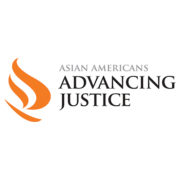ON October 10, 2018, the Department of Homeland Security (DHS) officially posted proposed changes to public charge regulations in the Federal Register. They are not final, and are open for public comment for 60 days, until December 10, 2018. The proposed rules change the public charge test and expand the number of public benefit programs to be included in the determination, making it more difficult for immigrant families to stay together and creating fear, confusion, and anxiety among community members. This article provides an overview of the proposed rules and those who may be affected by them, as well as steps that individuals can take to advocate against them.
Public charge is a term used by immigration officials to refer people who rely on government assistance to primarily support their cost of day-to-day living. Officials look and consider the totality of a person’s circumstances in a public charge determination. Currently, the only public benefits that are considered are cash assistance programs, such as Temporary for Needy Families, and long-term nursing home care paid for the government.
It is critical to understand that the proposed public charge are not final and the rules governing public charge in the U.S. have not yet changed. However, if the rule is finalized, immigration officials could consider a much wider range of government program to public charge determination including: Non-emergency Medicaid, Medicare Part D Low-Income Subsidy (which helps low-income seniors afford prescription drug coverage), Supplemental Nutrition Assistance Program (SNAP) or food stamps, Section 8 housing vouchers and subsidized public housing. In addition, the new proposed rule will consider certain factors more heavily weighted negatively such as age, income, health conditions, and English Language Proficiency.
The proposed changes will significantly impact the people who are applying to be lawful permanent residents (LPR or Green Card Holders) inside the U.S., LPRs that have been out of the country for more than 6 months and are seeking to come back to the U.S., nonimmigrant visa holders, (i.e students, tourist, temporary workers) who would like to stay longer or to change a different visa or status and foreign nationals seeking entry or reentry into the U.S.
In addition, the proposed changes will not affect people who are applying for citizenship; people who have become citizens; and certain groups of immigrants, including refugees, asylees, T- or U-visa applicants/holders, Violence Against Women Act (VAWA) self-petitioners, special immigrant juveniles, and certain other immigrants who have a special relationship with the U.S. or came here under certain humanitarian programs.
There is no set date settled when these changes are going to happen. Since proposed changes were published in the Federal Register on October 10, 2018, the public has an opportunity to provide feedback in writing for 60 days during the process of the public comment period. The government is required to review individualized comments and respond to them for deciding on the final rule. You should continue to stay enrolled and use health, nutrition and housing programs that are important for your health and well-being. In total, it will take at least several months for these proposed rules to be finalized and the rule would not be retroactive so the use of benefits before its effective date will not be considered in any public charge determination.
There are several ways you can do to stop this from happening. You can share your stories by writing a letter and submit it during the public comment period at: bit.ly/AAAJ-public-charge. The federal register website only accepts letters in English, and, if you are more comfortable writing your letter in another language, it will need to be translated into English before you submit it. The open comment period ends on December 10, 2018. Furthermore, you can contact your Congressional representative at (202) 224-3121 and express why many of these health, housing, and nutrition programs are important to you and to your family.
If you have questions, or would like a sample letter, please contact Advancing Justice – L.A’s Tagalog helpline at 855-300-2552.
***
Asian Americans Advancing Justice – Los Angeles (Advancing Justice – LA) is the nation’s largest legal and civil rights organization for Asian Americans, Native Hawaiians, and Pacific Islanders (NHPI). Founded in 1983 as the Asian Pacific American Legal Center, Advancing Justice – LA serves more than 15,000 individuals and organizations every year. Through direct services, impact litigation, policy advocacy, leadership development, and capacity building, Advancing Justice – LA focuses on the most vulnerable members of Asian American and NHPI communities while also building a strong voice for civil rights and social justice. For more information, please visit https://www.advancingjustice-la.org/.






